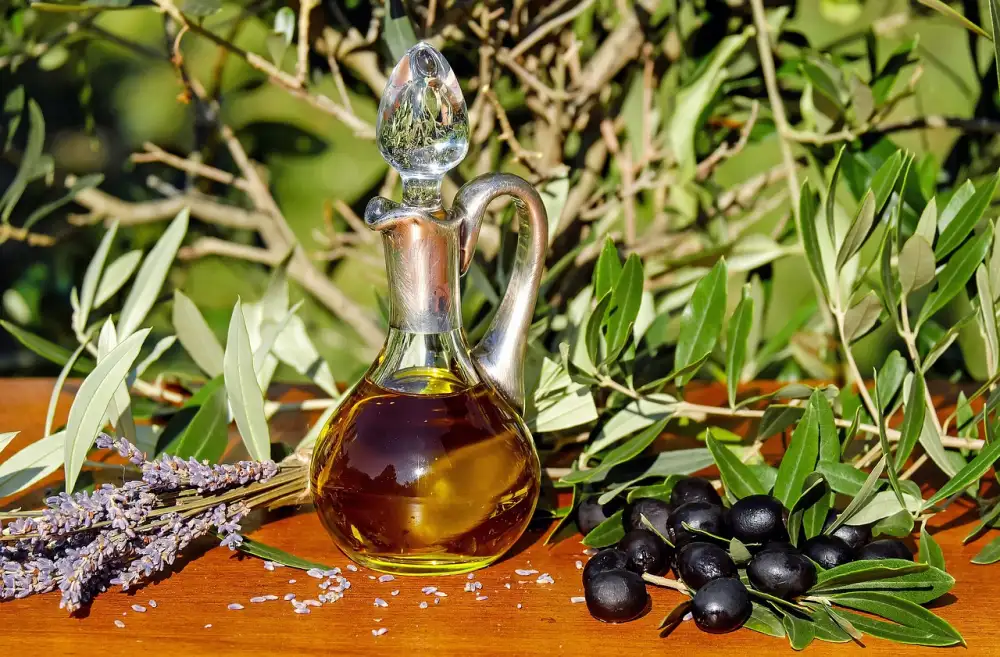Unveiling the Truth: Can Peppermint Oil Truly Repel Mice? Find Out Here!

- Understanding the scent-based repellent properties of peppermint oil
- Exploring the effectiveness of peppermint oil in repelling mice
- How to use peppermint oil to repel mice in your home
- Tips for maximizing the repellent effects of peppermint oil
- Potential drawbacks and limitations of using peppermint oil as a mouse repellent
When it comes to dealing with unwanted mice in our homes, many of us are hesitant to resort to chemical-based solutions. That's where peppermint oil comes in. This natural and aromatic oil has gained popularity as an effective mouse repellent, offering a safe and eco-friendly alternative. But does it really work? In this article, we will delve into the world of peppermint oil and uncover the truth behind its reputation as a mouse deterrent. So, let's explore the scent-based properties of peppermint oil and find out if it can truly repel those pesky rodents!
Understanding the scent-based repellent properties of peppermint oil
Peppermint oil is known for its strong, refreshing scent that humans find pleasant. However, mice are repelled by this scent. The active compounds in peppermint oil, such as menthol and pulegone, act as natural deterrents for mice. These compounds overwhelm the mouse's olfactory system, making it difficult for them to navigate and locate food sources. Additionally, the strong scent of peppermint oil masks the pheromone trails left by mice, disrupting their communication and social behavior. By understanding the scent-based repellent properties of peppermint oil, we can harness its power to keep mice away from our homes.
Exploring the effectiveness of peppermint oil in repelling mice
Exploring the effectiveness of peppermint oil in repelling mice is crucial to determine if it's a viable solution for homeowners. Studies have shown that mice have a strong aversion to the scent of peppermint oil, making it an effective natural repellent. The strong aroma of peppermint oil overwhelms their sensitive olfactory system, causing them to avoid areas where the scent is present. However, it's important to note that the effectiveness may vary depending on factors such as the concentration and quality of the oil used. Further research is needed to fully understand the extent of its repellent properties and how long it can effectively deter mice.
How to use peppermint oil to repel mice in your home
To use peppermint oil as a mouse repellent in your home, start by identifying areas where mice are likely to enter, such as cracks, gaps, and holes. Mix 10-15 drops of peppermint oil with water in a spray bottle and shake well. Spray the solution along these entry points, focusing on doorways, windowsills, and baseboards.
You can also soak cotton balls in pure peppermint oil and place them strategically around your home, especially near areas where you have seen mouse activity. Replace the cotton balls every few weeks or when the scent starts to fade.
For added effectiveness, consider using peppermint oil in combination with other natural deterrents like cloves or cayenne pepper. This can create a stronger scent barrier that mice find even more repelling.
Remember to reapply the peppermint oil regularly, as its scent fades over time. Additionally, keep your home clean and free of food crumbs or spills that may attract mice in the first place. Regularly vacuuming and decluttering can help discourage their presence.
By following these steps and maintaining consistency in application, you can increase your chances of successfully repelling mice using peppermint oil.
Tips for maximizing the repellent effects of peppermint oil
To maximize the repellent effects of peppermint oil, here are some tips to keep in mind. First, ensure that you are using pure, high-quality peppermint oil. Diluting it with water or carrier oils may reduce its effectiveness. Second, regularly reapply the oil to maintain a strong scent barrier. Mice can become accustomed to the smell over time. Third, strategically place cotton balls soaked in peppermint oil near potential entry points, such as doors and windows. Lastly, consider combining peppermint oil with other natural deterrents like cloves or cayenne pepper for added potency.
Potential drawbacks and limitations of using peppermint oil as a mouse repellent
While peppermint oil has shown promise as a natural mouse repellent, it is important to note its potential drawbacks and limitations. First, the effectiveness of peppermint oil may vary depending on the severity of the mouse infestation. In cases of severe infestations, additional measures may be necessary.
Furthermore, peppermint oil may need to be reapplied regularly to maintain its repellent effects. The scent can dissipate over time, reducing its efficacy in repelling mice. This means that consistent and frequent application is required for optimal results.
Additionally, some studies suggest that mice can develop a tolerance to peppermint oil over time. This means that while it may initially repel mice, they could eventually become accustomed to the scent and ignore its deterrent effects.
Lastly, it is worth mentioning that peppermint oil alone may not be sufficient to completely eradicate a mouse problem. It is best used as part of an integrated pest management approach that includes proper sanitation practices and sealing off entry points.
Considering these limitations, it is important to weigh the pros and cons before relying solely on peppermint oil as a mouse repellent. While it can be effective in certain situations, it may not provide a foolproof solution for every home or infestation.
In conclusion, peppermint oil can be a viable solution for keeping mice out of your home. Its strong scent acts as a natural repellent, deterring mice from entering your living space. However, it is important to note that while peppermint oil may work for some people, it may not be effective for everyone. Additionally, its effectiveness may vary depending on the severity of the infestation and the specific circumstances of your home. It is always recommended to combine the use of peppermint oil with other preventive measures such as sealing entry points and maintaining cleanliness. Overall, peppermint oil can be a valuable tool in your battle against mice, but it should be used in conjunction with other strategies for optimal results.
Published: 26. 12. 2023
Category: Home



